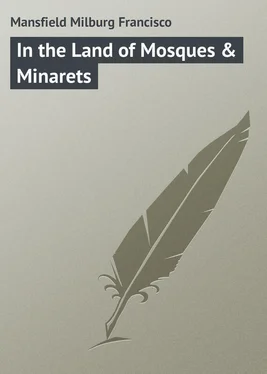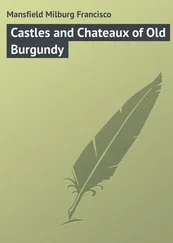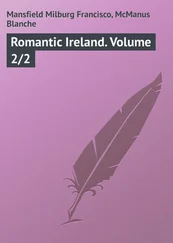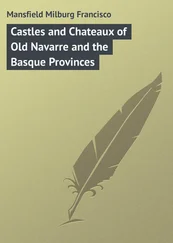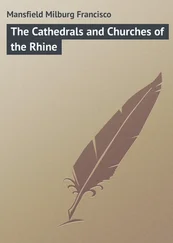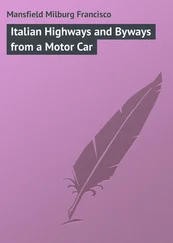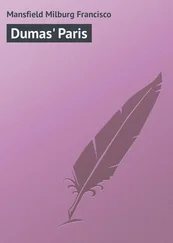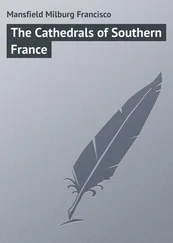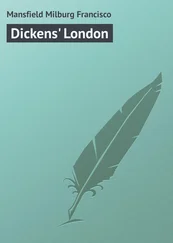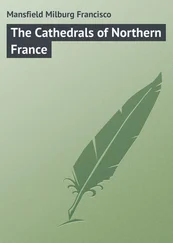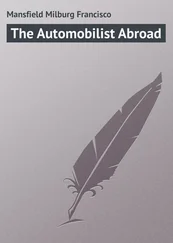Milburg Mansfield - In the Land of Mosques & Minarets
Здесь есть возможность читать онлайн «Milburg Mansfield - In the Land of Mosques & Minarets» — ознакомительный отрывок электронной книги совершенно бесплатно, а после прочтения отрывка купить полную версию. В некоторых случаях можно слушать аудио, скачать через торрент в формате fb2 и присутствует краткое содержание. ISBN: , Жанр: foreign_prose, Путешествия и география, на английском языке. Описание произведения, (предисловие) а так же отзывы посетителей доступны на портале библиотеки ЛибКат.
- Название:In the Land of Mosques & Minarets
- Автор:
- Жанр:
- Год:неизвестен
- ISBN:http://www.gutenberg.org/ebooks/46705
- Рейтинг книги:5 / 5. Голосов: 1
-
Избранное:Добавить в избранное
- Отзывы:
-
Ваша оценка:
- 100
- 1
- 2
- 3
- 4
- 5
In the Land of Mosques & Minarets: краткое содержание, описание и аннотация
Предлагаем к чтению аннотацию, описание, краткое содержание или предисловие (зависит от того, что написал сам автор книги «In the Land of Mosques & Minarets»). Если вы не нашли необходимую информацию о книге — напишите в комментариях, мы постараемся отыскать её.
In the Land of Mosques & Minarets — читать онлайн ознакомительный отрывок
Ниже представлен текст книги, разбитый по страницам. Система сохранения места последней прочитанной страницы, позволяет с удобством читать онлайн бесплатно книгу «In the Land of Mosques & Minarets», без необходимости каждый раз заново искать на чём Вы остановились. Поставьте закладку, и сможете в любой момент перейти на страницу, на которой закончили чтение.
Интервал:
Закладка:
The French African possessions include more than a third of the continent, an area considerably more extensive than the United States, Alaska, Porto Rico, and the Philippines combined. One hears a lot about the development of the British sphere of influence in Africa; but not much concerning that of the French which, since the unhappy affair of Fashoda, has been more active than ever. The French are not the garrulous nation one sometimes thinks them. They have a way of doing things, and saying nothing, which is often fraught with surprises for the outside world. Perhaps Morocco and Tripoli de Barbarie may come into the fold some day; and, then, with the French holding the railways of Egypt and the Suez Canal, as at present, they will certainly be the dominant Mediterranean and African power, if they may not be reckoned so already.
The Saharan desert is French down to its last grain of sand and the last oasis palm-tree, and it alone has an area half the size of the United States.
Of Mediterranean French Africa, Tunisia is a protectorate, but almost as absolutely governed by the French as if it were a part of the Ile de France. Algérie is a part of France, a Department across the seas like Corse. It holds its own elections and has three senators and six deputies at Paris. Its governor-general is a Frenchman (usually promoted from the Préfecture of some mainland Département) and most of the officialdom and bureaucracy are French.
Trade between Algeria and France, mostly in wines and food stuffs on one side, and manufactured products on the other, approximates three hundred millions of francs in each direction. Algeria, “la belle Algérie” as the French fondly call it, is not a mere strip of mountain land and desert. It is one of the richest agricultural lands on earth, running eastward from the Moroccan frontier well over into Tunisia; and, for ages, it has been known as the granary of Europe. The Carthaginians and the Phœnicians built colonies and empires here, and Rome was nourished from its wheat-fields and olive-groves.
The wheat of Africa was revered by the Romans of the capital above all others. One of the pro-consuls sent Augustus a little packet of four hundred grains, all grown from one sole seed, whereupon great national granaries were built and the commerce in the wheat of Africa took on forthwith almost the complexion of a monopoly. The sowing and the harvest were most primitive. “I have seen,” wrote Pliny (H. N. XVIII, 21), “the sowing and the reaping accomplished here by the aid of a primitive plough, an old woman and a tiny donkey.” The visitor may see the same to-day!
At the moment of the first autumn rains the Arab or Berber cultivator works over his soil, or sets his wives on the job, and sows his winter wheat. The planting finished, the small Arab farmer seeks the sunny side of a wall and basks there, watching things grow, smoking much tobacco and drinking much coffee, each of these narcotics very black and strong. Four months later his ample, or meagre, crop comes by chance. Then he flays it, not by means of a flail swung by hand, but by borrowing a little donkey from some neighbour, – if he hasn’t one of his own, – and letting the donkey’s hoofs trample it out. Now he takes it – or most likely sends it – to market, and his year’s work is done. He rolls over to the shady side of his gourbi (the sunny side is getting too warm) and loafs along until another autumn. He might grow maize in the interval, but he doesn’t.
The Barbary fig, or prickly-pear cactus, is everywhere in Algeria and Tunisia. It grows wild by the roadside, in great fields, and as a barrier transplanted to the top of the universal mud walls. Frost is its only enemy. Everything and everybody else flees before it except the native who eats its spiny, juicy bulbs and finds them good. The rest of us only find the spines, and throw the fruit away in disgust when we attempt to taste it. The Barbary fig is the Arab’s sole food supply when crops fail, the only thing which stands between him and starvation – unless he steals dates or figs from some richer man’s plantation. The Arab’s wants are not great, and with fifty francs and some ingenuity he can live a year.
The palm-trees of Africa number scores of varieties, but those of the Mediterranean states and provinces, the date-bearing palm, come within three well-defined classes: the Phœnix-dactylifera , the chamaerops-humilis and the cucifera-thebaica .
Even the smallest Arab proprietor of land or sheep or goats pays taxes. The French leave its collection to the local Caïds or Sheiks, but it gets into the official coffers ultimately, – or most of it does.
In Algeria there are four principal taxes, or impôts :
The Achour on cereals; the Zekai , on sheep and cattle to-day, but originally a tax collected for the general good, as prescribed by the Koran; the Hokar (in Constantine), a tax on land; the Lezma , the generic term for various contributions, such as the right to carry firearms (the only tax levied in Kabylie), and the tax on date-palms in the Sud-Algérie and Sud-Oranais. The Arab carries a gun only after he gets a permit, which he must show every time he buys powder or shot.
In Tunisia the taxes are much the same; but there is a specific tax on olive-trees as well as date-palms, and on the markets and the products sold there.
The wines of Algeria and Tunisia are the product of foreign vines whose roots were transplanted here but little more than half a century ago. These vines came from all parts, from France, Switzerland, Spain, Italy, Malta and America; and now the “ vin d’Algérie ” goes out to the ends of the earth, – usually under the name of a cru more famous. It is very good wine nevertheless, this rich, hybrid juice of the grape; and, though the Provençal of Chateauneuf, the sons of the Aude, the Garde and the Hérault, or the men of Roussillon do not recognize Algerian wine as a worthy competitor of their own vintages, it is such all the same. And the Peroximen, supposed to be a product only of Andalusia, and the Muscatel of Alexandria, are very nearly as good grown on Algerian soil as when gathered in the place of their birth.
The “ vin rosé ” of Kolea, the really superb wines of Médea, and the “ vin blanc de Carthage ,” should carry the fame of these North African vintages to all who are, or think they are, judges of good wine.
With such a rich larder at their very doors, the mediæval Mediterranean nations were in a constant quarrel over its possession. Vandals and Greeks fought for the right to populate it after the Romans, but the Moorish wave was too strong; the Arab crowded the Berber to the wall and made him a Mussulman instead of a Christian, a religious faith which the French have held inviolate so far as proselytizing goes. It is this one fundamental principle which has done much to make the French rule in Algeria the success that it is. Britain should leave religion out of her colonizing schemes if she would avoid the unrest which is continually cropping up in various parts of the empire; and the United States should leave the friars of the Philippines alone, and let them grow fat if they will, and develop the country on business lines. We are apt to think that the French are slow in business matters, but they get results sometimes in an astonishingly successful manner, and by methods which they copy from no one.
The ports of Algeria and Tunisia are of great antiquity. The Romans, not content with the natural advantages offered as harbours, frequently cut them out of the soft rock itself, or built out jetties or quais , as have all dock engineers since when occasion demanded. There are vestiges of these old Roman quais at Bougie, at Collo, at Cherchell, at Stora and at Bona. These Roman works, destroyed or abandoned at the Vandal invasion, were never rebuilt; and the great oversea traders of the Italian Republics, of France and of Spain, merely hung around offshore and transacted their business, as do the tourist steamers at Jaffa to-day, while their personally conducted hordes descend upon Jerusalem and the Jordan.
Читать дальшеИнтервал:
Закладка:
Похожие книги на «In the Land of Mosques & Minarets»
Представляем Вашему вниманию похожие книги на «In the Land of Mosques & Minarets» списком для выбора. Мы отобрали схожую по названию и смыслу литературу в надежде предоставить читателям больше вариантов отыскать новые, интересные, ещё непрочитанные произведения.
Обсуждение, отзывы о книге «In the Land of Mosques & Minarets» и просто собственные мнения читателей. Оставьте ваши комментарии, напишите, что Вы думаете о произведении, его смысле или главных героях. Укажите что конкретно понравилось, а что нет, и почему Вы так считаете.
